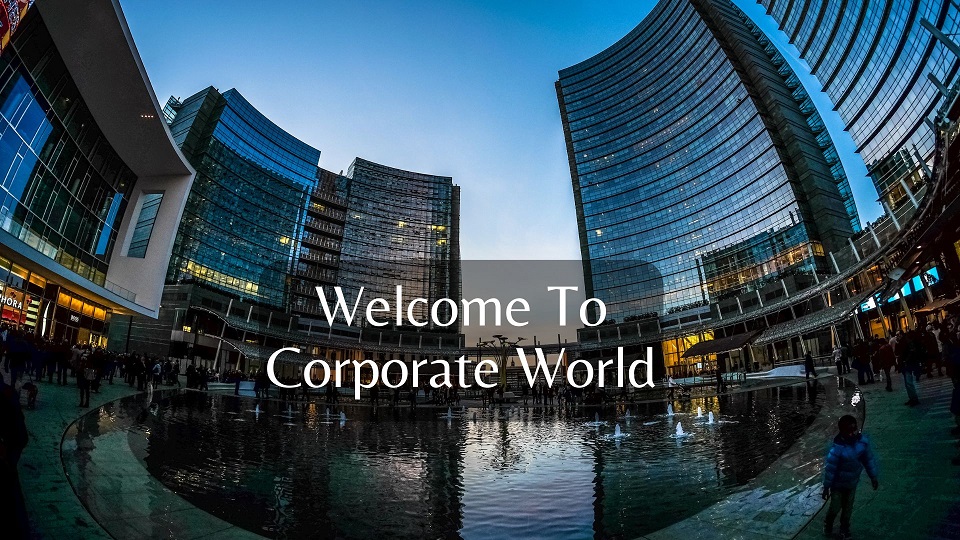Introduction To Corporate World
19 Nov


The Corporate World refers to the environment, structure, and ecosystem of businesses, organizations, and companies that operate in a formal, organized manner within various industries. It encompasses large-scale businesses that range from multinational corporations to medium-sized and smaller enterprises. Here's an overview of the corporate world:
Key Aspects of the Corporate World
1. Organizational Structure
- Hierarchy: Corporations typically have a hierarchical structure, with clearly defined roles and responsibilities. The most common structure involves:
- C-Suite Executives: CEOs, CFOs, COOs, CTOs, etc.
- Managers: Middle and senior managers oversee various departments.
- Employees/Staff: Operational staff and specialists work across different functions such as marketing, finance, HR, sales, and IT.
- Departments: Corporations are divided into specialized departments such as:
- Marketing
- Sales
- Finance and Accounting
- Human Resources (HR)
- Operations
- Research and Development (R&D)
- IT and Technology
- Corporate culture refers to the shared values, behaviors, beliefs, and practices that define how employees interact and work within an organization.
- Key components include:
- Work Ethic: The attitude toward work, such as the level of professionalism, collaboration, and effort.
- Communication: How information flows within the organization—whether formal or informal.
- Work-Life Balance: Companies may have different approaches to employee well-being and flexibility.
- Innovation and Creativity: How much the company encourages new ideas, problem-solving, and taking risks.
- Corporate governance is the system by which companies are directed and controlled. It ensures accountability and fairness in the company's relationships with stakeholders (e.g., shareholders, employees, customers).
- Board of Directors: A group of individuals responsible for overseeing the company’s activities and making strategic decisions.
- Compliance and Regulations: Corporations must adhere to legal requirements, industry standards, and ethical practices to ensure transparency and maintain trust with stakeholders.
- CSR refers to companies taking responsibility for the impact of their activities on society and the environment. It involves ethical decision-making in areas such as:
- Environmental Sustainability: Minimizing environmental impact and adopting green practices.
- Philanthropy: Engaging in charitable activities and social initiatives.
- Ethical Business Practices: Fair treatment of employees, suppliers, and consumers.
- Corporate strategy refers to the overall plan or direction a company follows to achieve long-term goals and competitive advantage.
- It involves decisions about market positioning, innovation, growth, mergers, and acquisitions.
- Strategic Planning: A detailed plan for achieving corporate goals, often involving a SWOT analysis (Strengths, Weaknesses, Opportunities, Threats).
- Effective communication within and outside of the company is crucial for success. It includes:
- Internal Communication: Between employees, departments, and leadership. This could involve meetings, emails, intranet, etc.
- External Communication: Interaction with customers, shareholders, media, and the public, including marketing materials, press releases, and social media engagement.